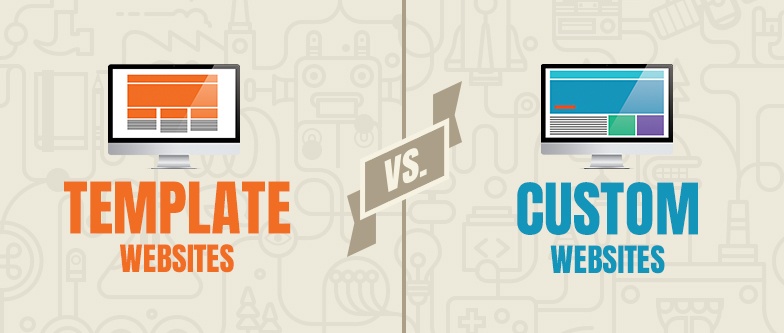Every day, in offices across the country, business owners and marketing executives are ripping their hair out trying to determine how much or how little to invest in redesigning their embarrassingly old websites. We see it all the time. But the decision between a custom website and a template-based website doesn’t have to come with an ulcer.
The fact is website templates are great solutions for several companies just as custom websites are important for others. The right choice boils down to some important factors you should consider:
Budget
The first thing to keep in mind is that your website is not the place to save on budget. It’s the most complete representation of your brand. It’s the main hub for all your branding and marketing initiatives. Your website is the one place your consumers know they will always find you, 24 hours a day, 7 days a week. A high-quality website will constantly be a sound investment.
Quality custom websites do not come cheap. Not all organizations are in a situation to afford one. If your budget is less than $20,000, for instance, a template-based website is probably your best option. Template websites provide you pre-packaged designs, saving you the cost of owning someone do these things for you. The tradeoff is the conditions that come with them. Template sites can be clear and functional on the surface, but their quality usually finishes there.
If your company can afford one, a custom website is a no-brainer. And the cost should always be estimated in context.
Time
The other unavoidable fact about custom websites is that they need time to design and build. A quality custom website needs at least 2 to 4 months to start, depending on its size and the complexity of its characteristics. There’s no way to fast-track this method because there are simply too several moving parts involved. Planning, wireframes, copywriting, photography, testing, design, development, optimization—custom websites need many different people managing through complex tasks on interdependent timelines.
So if you’re in a hurry to make a website live—whether for a product launch, event, or good old-fashioned impatience—you’ll presumably have to settle for a website template.
Functionality
The constraints of website templates extend to functionality as well. For beginners, not all templates are designed to be fully responsive. Supposing that mobile traffic accounts for more than half of internet use these days, responsiveness is no longer an optional characteristic.
If you’re looking to do any kind of serious e-commerce with your website, a custom site is a must as well. Template-based sites don’t afford the flexibility to provide the backend necessary for an e-commerce model. Security can also be a concern with website templates. Hackers enjoy template-based sites because a single part of malicious code can be used to hack thousands of sites at once. The unique evolution of custom sites makes them less exposed to attacks.
It can appear like a stressful decision at the beginning, but the decision between a custom website and website template is a no-brainer if you know which questions to ask. For those companies that aren’t restricted by budget and timeline, a custom website is almost always the plan to go. Website templates come with too many constraints on brand expression, functionality, and scalability.


